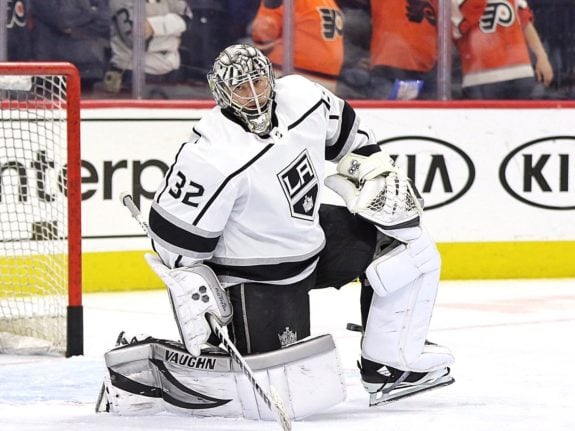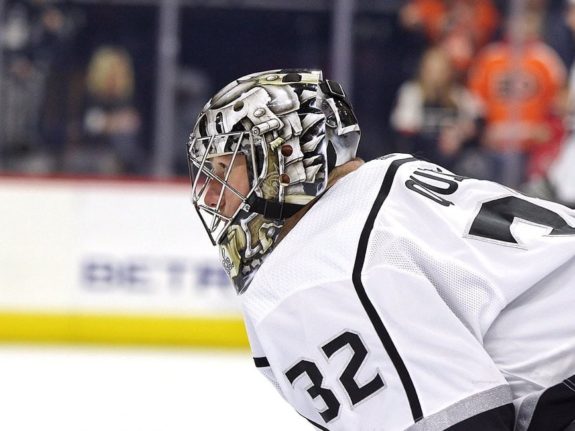Jonathan Quick is in the conversation for greatest American goaltender in NHL history. He has two Stanley Cups, two Jennings Trophies, a Conn Smythe and ranks fourth in all-time wins by an American goalie in NHL history. There has been a decline in his play the last few seasons, but that should not deter Seattle from selecting him in the expansion draft. There may even be some additional incentive if the Kraken agree to take him this offseason.
Contract
The big issue with Quick is his contract, as he turns 36 next season and carries a cap hit of $5.8 million for the next two seasons. The actual money owed over the next two seasons is $5 million total, so the issue is focused solely on the cap. The good news for Seattle is they do not have any cap constraints like other teams do with the flat cap. They also do need to get to the cap floor, so this contract could help them in that capacity.

If Seattle is going to take Quick, though, there needs to be some incentive. Some of the players who may be exposed include Dustin Brown, Kale Clague, Trevor Moore, Matt Roy and Austin Wagner. Would a third-round pick be enough to keep Seattle from selecting one of LA’s young up-and-coming players? Teams will be more hesitant to trade assets to Seattle, but with players like Cal Petersen, Dávid Hrenák and Jacob Ingham all ready to take the next step, it could be in LA’s best interest to move on from the best goaltender in their franchise’s history.
Last 2 Seasons
After a bad 2018-19 season in which he registered a .888% save percentage (SV%), Quick has rebounded these last two seasons and played like a low-end starter. He has a .902% SV% and 2.81 goals against average (GAA) but only played in 64 games due to injury. His record is 27-31-6 playing on an LA team that has been rebuilding over that stretch.
Injury problems, combined with the fact that Cal Petersen has emerged as a solid prospect, have limited Quick to 64 games that past two seasons. Despite that, he’s showing he has the ability to regain his form and at least perform to the level of a high-end backup in the NHL.
Quick’s Analytics
Looking at Quick’s analytics provides a better perspective on what type of player he was last season. According to Money Puck’s statistics, he had a .857 SV% on medium danger shots and a .767 SV% on high danger shots. Those were both higher than his counterpart and successor Petersen, and he also had a lower GAA and more shutouts than Petersen this season.

As for special teams work, Quick was one of the best in the league. Among goaltenders who played 20 games or more, he ranked second in power play save percentage at .911 percent and only gave up seven goals on 79 shots. In comparison, Petersen had a .890 SV% on the power play, giving up 19 goals on 173 shots. It is evident that Quick can still contribute, just in a more limited role than what he is used to.
Playing Quick less does come with some risk. This season, during the nine games he had four or more days of rest between starts, he averaged an .884 SV%. This is a relatively recent problem, as over his career, he holds a .916 SV% in 98 such starts. There are many factors as to why this may have occurred this season, as this was the first time he failed to register above a .900 SV% since 2014-15. The statistics tell us he has seen a decrease in play the last few seasons, but he is trending positively compared to his 2018-19 season.
Worth the Risk
The thought of Quick is going to scare people away based on his statistics and age. Although he might not be a great starter anymore, he can still provide quality starts and mentorship if Seattle goes with a younger option in net. He also brings name recognition to the Kraken, who will be looking for every opportunity to market players to a new fan base. Bringing in the two-time Stanley Cup champion and former US Olympic goaltender could make him a fan favourite right from the beginning.